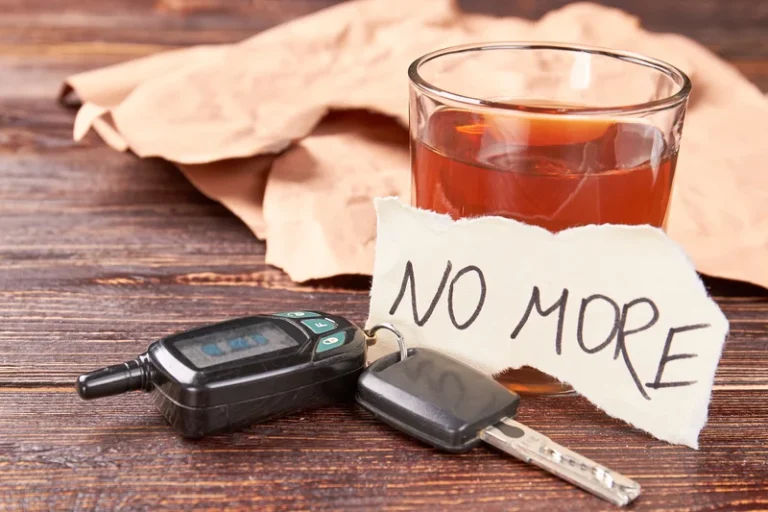Read the label on the medication bottle to find out exactly what ingredients a medicine contains. Ask your pharmacist if you have any questions about how alcohol might interact with a drug you are taking. Combining alcohol with medications used to treat hypertension (high blood pressure) can cause dizziness, fainting, drowsiness, and arrhythmia (irregular heartbeat).
How Can Alcohol Affect My Medication?
When combined with alcohol, medications for attention and concentration disorders can make a person dizzy and sleepy. In addition, the older we get, the more likely we are to be taking one or more medications that could interact with alcohol. Alcohol and medicines can cause harmful effects even if they’re not taken simultaneously. https://ecosoberhouse.com/ Sometimes, you can drink a few hours after taking a medication, other times you’ll need to wait a few days or longer. Caffeine-fueled energy drinks can be a popular mix among college students. Energy drinks mixed with alcohol can lower the feeling of intoxication, which can lead to excessive drinking and alcohol-related injuries.
Alcohol affects women differently
Checking for interactions and discussing them with your doctor or pharmacist is the best way to prevent harm. Medications typically are safe and effective when used appropriately. Your pharmacist or other health care provider mixing alcohol and drugs causes an effect called can help you determine which medications interact harmfully with alcohol. Medications that are prescribed to treat nausea can make you feel drowsy, dizzy, and may impair your motor control—symptoms that can also be caused by alcohol. Some drugs (often antihistamines) used to prevent and treat motion sickness can also be purchased over-the-counter. If you take prescription medication or use a specific medication every day, ask your doctor if it is okay for you to drink alcohol.
Medicines may have many ingredients
Some arthritis medicines, when combined with alcohol, can cause ulcers, stomach bleeding, and liver damage. When you recommend or prescribe a medication that can interact with alcohol, this scenario presents a natural opening to review or inquire about a patient’s alcohol intake. The potential for a harmful interaction may provide a compelling reason for patients to cut down or quit drinking when warranted (see Core articles on screening and brief intervention). The combination of opioid painkillers and alcohol is also of great concern, and should always be avoided. The use of alcohol and pain medications like narcotics together can slow or stop breathing (respiratory depression) and may be deadly. Examples of common opioids include codeine, oxycodone, morphine, methadone, fentanyl, and hydrocodone.
Heartburn Medications
- There are currently no reports of Glyxambi interacting with vitamins.
- Warfarin is a commonly used medication to prevent blood clots, sold under the name Coumadin.
- The potential for a harmful interaction may provide a compelling reason for patients to cut down or quit drinking when warranted (see Core articles on screening and brief intervention).
- For millions of people, it’s a regular part of the dining experience, social and sports events, celebrations, and milestones.
The list gives the brand name by which each medicine is commonly known (for example, Benadryl®) and its generic name or active ingredient (in Benadryl®, this is diphenhydramine). The list presented here does not include all the medicines that may interact harmfully with alcohol. Most important, the list does not include all the ingredients in every medication.
Treatment & Support
Certain medical conditions or other health factors may raise the risk of interactions with Glyxambi. Before taking Glyxambi, talk with your doctor about your health history. There are currently no reports of Glyxambi interacting with vitamins. But Glyxambi can interact with chromium, which is a mineral used to help manage blood sugar levels. Taking Glyxambi with chromium may lower your blood sugar below the recommended range. If you have questions about drug interactions that may affect you, talk with your doctor or pharmacist.
- Protect yourself by avoiding alcohol if you are taking a medication and don’t know its effect.
- After nicotine, alcohol is the most commonly abused drug in our society.
- Acamprosate (Campral) eases withdrawal symptoms — such as insomnia, anxiety, restlessness, and feeling blue — that can last for months after you stop drinking.
- According to the report, police responded to the home on Country Club around 9 p.m.
- The prescribing doctor names not only the drug involved but also the specific dosage, amount of drug dispensed, and frequency of administration.
- Glyxambi may interact with insulin, which is used to help manage blood sugar levels in people with diabetes.
- Alcohol can make some medications less effective by interfering with how they are absorbed in the digestive tract.
- Medications used to prevent seizures include carbamazepine, gabapentin, phenobarbital, phenytoin, topiramate, and valproic acid.
- However, drinking while using certain pharmaceuticals can actually cause serious injury or death.
- Since people assigned male and female at birth have differences in body chemistry, they may absorb and metabolize alcohol at different rates.
- Medications prescribed to lower cholesterol levels (known as statins) can cause flushing, itching, stomach bleeding, and liver damage.
- “Stimulant drugs like those for ADHD…can have wildly activating effects when mixed with alcohol,” says Dr. Cutler.
- QUINCY, Mass. — A Quincy High School cheerleading coach has been placed on administrative leave after allegedly giving drugs and alcohol to students.
You can also ask your doctor about switching medications or decreasing your dose for certain conditions if that’s the case. While some individuals mix substances intentionally to enhance their high, others may unknowingly combine medications with alcohol, creating unpredictable and potentially life-threatening Oxford House consequences. Alcoholism and depression are common co-occurring disorders, which puts individuals at high risk for interactions between alcohol and antidepressant medications such as Prozac and Elavil. Effects can include impaired thinking, dangerously high blood pressure, intensified depression symptoms and death. Use of prescription and non-prescription drugs, as well as herbal remedies, also is extremely prevalent.






